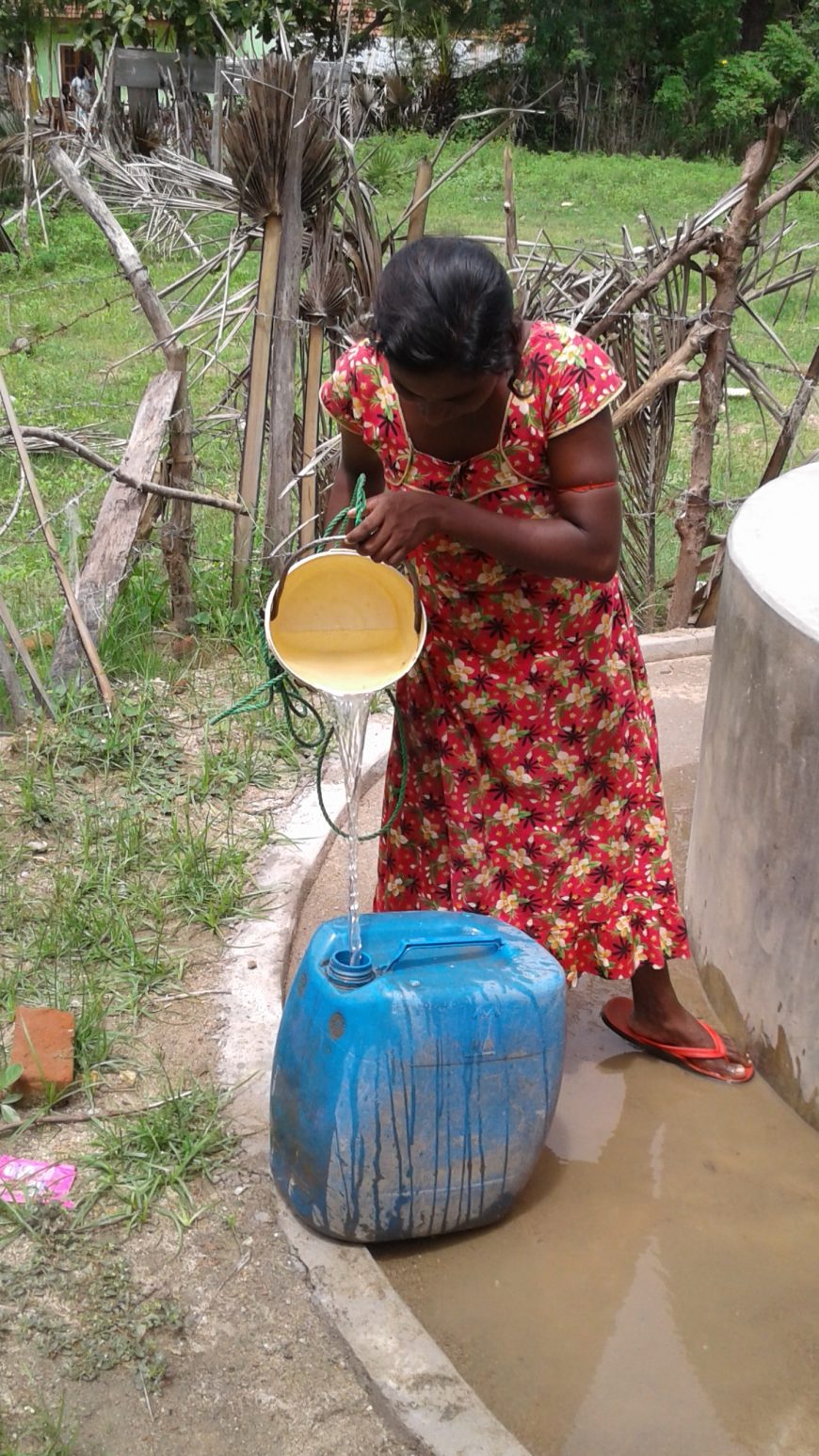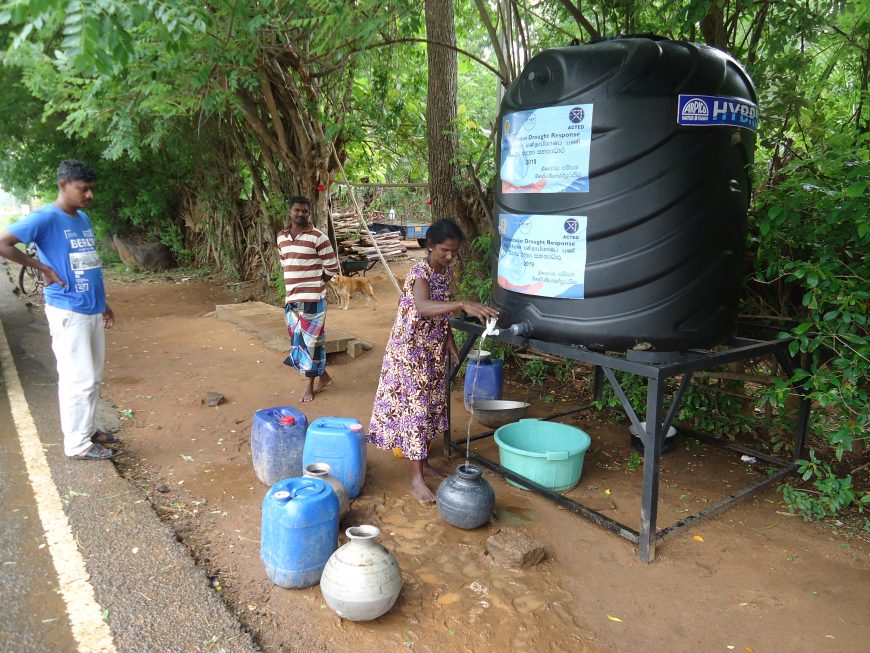Deep into the night, women across the Eastern Province of Sri Lanka venture on a 90 minute walk through brush and unlit roads to collect drinking water for their families.
Annually, the Eastern Province of Sri Lanka faces widespread drought, afflicting over a hundred thousand people. Given the limited number of water wells in the province, ACTED has worked to provide WASH support for communities to improve the supply of clean drinking water and reduce the distances that women must trek to collect water.
Lack of safe drinking water places families at risk
At its height, the drought in 2019 impacted 700,000 individuals across the Eastern Province, dramatically limiting access to safe drinking water affecting all spheres of life. These conditions put great pressure on families, particularly mothers, who spoke about the emotional burden of leaving their children alone whilst they collected water from wells far from their homes. One mother said how her six-month-old son would wake up in the night and try to look for her.

Improving accessibility and cleanliness of drinking water
ACTED supported twenty villages in Batticaloa and Ampara districts by addressing two critical issues: the inaccessibility of water tanks and the lack of safe and clean drinking water. Communities were provided with 52 water tanks; feminine hygiene products and 800 households received water filters. Additionally ACTED provided water hygiene awareness sessions in order to mitigate unsafe water usage in future droughts.
Through ACTED’s support, communities have increased their preparedness for future droughts
With the aim of minimizing the risks on the lives of women and their children, ACTED’s provision of water tanks and filters means women who previously had to travel hours at night to collect brown, unsanitary water, now have access to safe drinking water from their backyards or convenient public spaces. The equipment that was provided will remain with the communities and households for use in both annual droughts and throughout any unanticipated prolonged droughts. Mothers can feel safe in the knowledge that their children will not be at risk from being left alone, as well as protected from preventable water-borne illnesses.
Before, I needed to travel for eight to nine hours just to purchase sanitary items due to minimum transport facilities. I carried my child with me from morning to evening when I went out. The assistance from ACTED meant that I no longer had to make these journeys. It saved my time, money and I was able to take care of my baby by reducing unnecessary travelling
